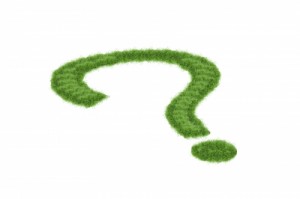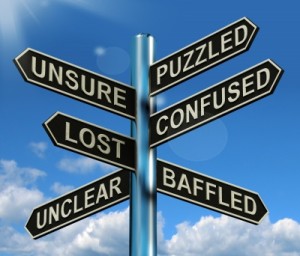Split Second Decisons
Sometimes, we are challenged by the big events that occur in our lives – a death, a wedding, an accident, a birth, a move away from the familiar to the unfamiliar.
Sometimes, however, it’s the little moments that can cause us some pretty decent challenges in our daily lives.
For myself, I’ve recently run into two small events that really have my mind going in all directions and are challenging me. It’s pushing me to take the little bits of time I’ve caught on the cushion here and there, and put them into practice.
Sometimes, I’m convinced that the dharma is in many respects harder to practice in those short, quick moments than in the big, ‘major’ ones.
Last week, I went out to lunch with a handful of my coworkers. We go out every Friday to the local pizza shop. Our outings are always pleasant: Their more extroverted personalities really liven up my day, and they seem to accept and be amused by my more quiet, introverted comments and contributions to the banter that takes place. I respect these women as highly intelligent, open-minded, compassionate and caring individuals.
That’s why it surprise me when, out of the blue, they all went off on a rampage about vegetarians and vegans. Recently, I’ve made the switch back to being vegetarian. There are many reasons for that which I won’t go into here, but suffice it to say, that it’s not a decision that I’ve worn on my sleeve or have advertised all over the place. As I stated, I’m introverted. I don’t wave my beliefs about, and especially not while living in my very small, rural region.
I live in a town with no sidewalks, two stop signs and no traffic lights. We don’t even have a post office. The school district I teach in serves several villages of this kind. “Liberal” is a dirty word, and “Buddhism” would be akin to something like “Voodoo” or “Satan worship” here. I don’t make any of my personal philosophies public out of a sense of self-preservation, and also for the sake of my kids who have to attend school here.
So, my co-workers had no idea that I was among those they were mocking and deriding. I was shocked and blind-sided. In a flash, my mind scrolled through several possible ways of handling the situation: I could tell them outright “Hey, um, I’m vegetarian”; or, I just keep it to myself and let them go on.
While they continued to verbally pummel vegetarians, I listened to their tirade with heart pounding and face flushing. I was numb: How could these people I respect and appreciate so much, be so close-minded about a philosophy they clearly don’t fully understand? It was really difficult not to take it as a personal assault, even though I knew they weren’t directing anything at me, per se.
I opted to not say anything. Some of the thoughts that flashed through my mind as I went through my options included “To what end would I mention to them that I’m vegetarian?” In the heat of that impassioned discussion about how silly vegetarians are, my outing myself would probably only cause them to feel awful and embarrassed. They would be mortified that they said such hurtful things without realizing that they were hurting me. I would cause this uncomfortable rift in the moment that would serve no purpose other than for me to get that “Gotcha!” feeling, which I never have a real interest in.
I didn’t really have time to explain to them my point of view. If I did have the time, I’m not convinced that I would successfully change their mind or succeed in smoothing feathers and reassuring them that I wasn’t angry with them for their opinions (which I’m not). So, I would cause this discomfort, not ‘fix’ the moment and …? The point seemed moot by the time we reached the spot in the hallway where we part ways. I just smiled and bid them a good weekend. As far as I know, they still have no idea about the mental turmoil that conversation caused me.
Since then, I’ve battled many feelings of anger, embarrassment and self-doubt. Did I make the right choice? Did I handle that properly? Am I being a real friend by not revealing my actual position in that discussion (I fear the answer to the latter is ‘no.’)
Another situation that I was faced with was one that broke my heart, and also left me wondering if I handled the situation well. My beautiful daughter (yes, I’m biased) told me a few days ago that one of her little friends asked her “Do you know that your skin is yellow?” This might sound like a cute, silly, innocent question, but directed to a child who is 1/4 Japanese, this is far from innocent.
Again, we live in a small town. I teach in this small district. My daughter attends elementary school in this same small district … everyone knows my background as having a Japanese mother … therefore, they know that my son and daughter are 1/4 Japanese.
This question was not rooted in innocence: it was rooted in hateful talk that my daughter’s friend overheard at home. I knew that to be true, but my daughter didn’t. I knew this moment would come, when my children would be challenged with the issue of being not-quite-white in a population that is literally 99% Caucasian.
Do I tell my innocent seven year old girl that this question from her classmate was rooted in racism? Do I shatter her world when she (and her little friend who asked the question) has no idea what racism even really means?
This conversation took place in the car on the way to school. As I pulled into the school’s parking lot, I decided this was not a conversation to be had at this moment … and perhaps not for some time. My daughter is quite sensitive and quite self-conscious, even though she seems bold and self-assured. I knew that if I told her that her friend’s question comes from hurtful comments she overheard, it would shatter her. I withheld tears while planting an extra kiss on her little cheek, and decided to allow her some more time with her innocence. Longer than I had — mine was shattered while in kindergarten, during recesses and lunches. I didn’t want that for her – she’s only in first grade.
These were all quick, split-second decisions that I know my practice helped me with. In days bygone, the conversation against vegetarians would have had me stewing and not talking to my co-workers for a long time. I would have perhaps not engaged in a heated debate, but I would have written them off as close-minded individuals who weren’t worth my time. Those decisions would have had far-reaching consequences into my working relationships and therefore my work environment – not good in a small, close-knit workplace.
This time, however, my practice allowed me that split-second pause to examine my feelings and thoughts in the moments that followed. In that short time, I found that a lot of them were reactions to comments that pointed to questions and issues to which I don’t have a good response. What difference DOES my vegetarianism make? How does my not eating meat help anything at all? Why am I choosing to be vegetarian while everyone else in my house is still eating meat? What does that accomplish? The answers to those questions may well be: Nothing, and it doesn’t. And those answers make me uncomfortable, because my decision to become vegetarian was very personal.
I take some satisfaction in my choice to not cause further suffering in the world beyond what already exists. My choice may not make much of a difference to the thousands of animals slaughtered every day. As I watch my daughter try and like some of my vegetarian dishes, however, and as I have dialogues with my children about my decision to not eat meat, I sense that my new lifestyle has farther-reaching consequences than perhaps I can express in a quick 30-minute lunch break (or in the two minutes of it that remained by the time the ladies were done with their verbal assault). The fact that my hope to impact the world in a positive way was being challenged flew in the face of my expectations and hopes to which I have grown attached. My co-workers challenged my ideals, and that’s what I didn’t like. Not themselves as individuals or as friends.
I am thankful for what little time I’ve found in these last weeks to spend on the cushion, and what I’ve learned so far in following the path. Thanks to those momentary mental pauses I can now make before reacting — the pause long enough to scroll through options and make a split-second choice to practice right speech, and check my intents — I’ve been able to preserve a child’s innocence for just a little longer, until she’s mature enough to truly handle what racism looks like. I’ve been able to preserve some work relationships that I value and that keep me sane.
Our practice isn’t only for the big moments, it’s for the hundreds of little moments we’re faced with daily.
“They (students of Buddhist meditation) enter the practice expecting instantaneous cosmic revelation, complete with angelic choirs. What they usually get is a more efficient way to take out the trash and better ways to deal with Uncle Herman.”
— From “Mindfulness in Plain English” by Bhante Gunaratana



